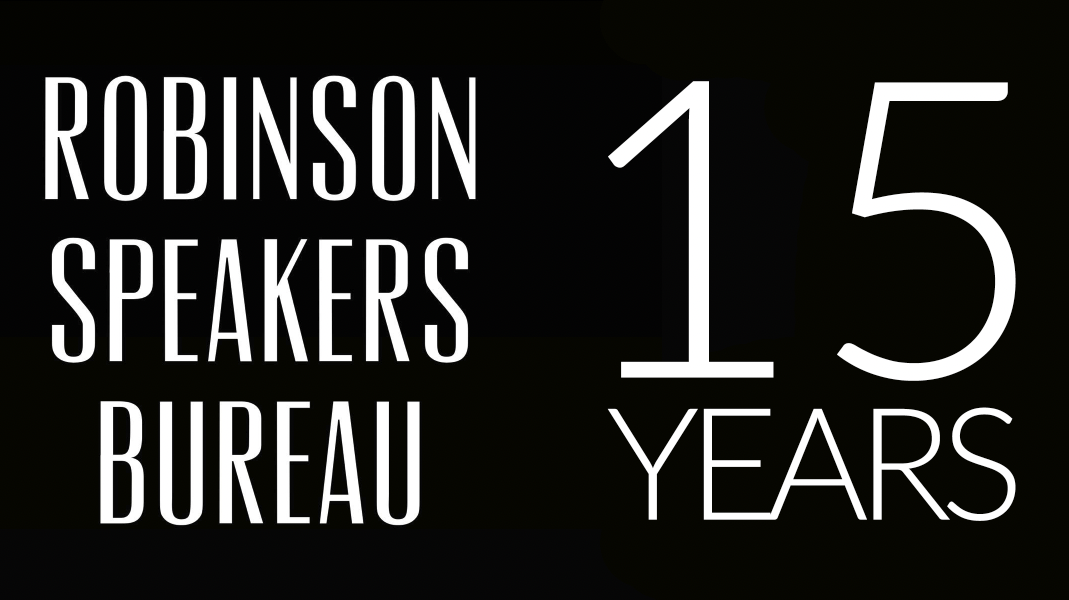Introduction
The future is often a murky, unpredictable place. Yet, as we edge closer to 2025, some top corporate themes begin to crystallize, shaping the corporate landscape with a little more clarity. For conference and event planners, understanding these themes isn’t just about keeping up—it’s about staying ahead, navigating the twists and turns of an ever-evolving business environment. Here’s your insider’s guide to the biggest themes of 2025, backed by the sharpest insights and the most reliable sources.
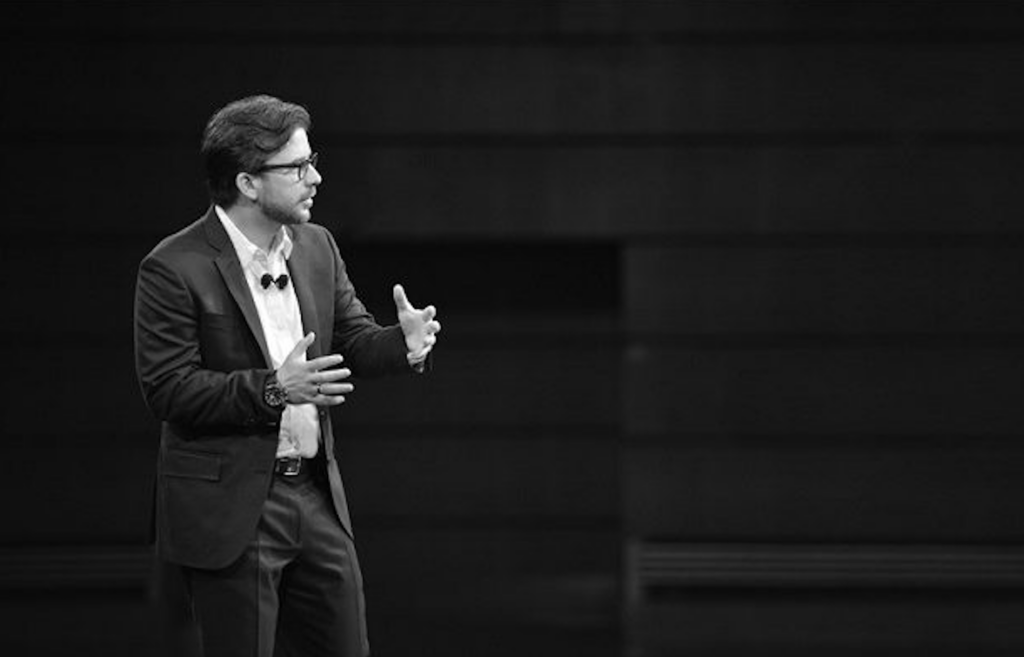
1. Continued Digital Transformation
Digital transformation is no longer the future—it’s the present, charging forward like a thriller, and it’s one of the top corporate themes next year. AI, blockchain, and the Internet of Things (IoT) are key players, each bringing their unique set of challenges and opportunities. Booking keynote speakers who are experts in these fields can provide invaluable insights for your audience.
Advanced AI and Machine Learning: According to Gartner’s “Top Strategic Technology Trends for 2024,” AI and machine learning are revolutionizing industries. Companies like IBM and Salesforce are at the forefront, using AI to automate processes and enhance decision-making. Imagine a world where customer service is handled seamlessly by AI, predicting needs and solving problems before they arise. That’s the future we’re heading towards. Even Mark Zuckerberg believes in the near future, companies will assign robots to every possible customer service inquiry. Quiet a hit to human labor!
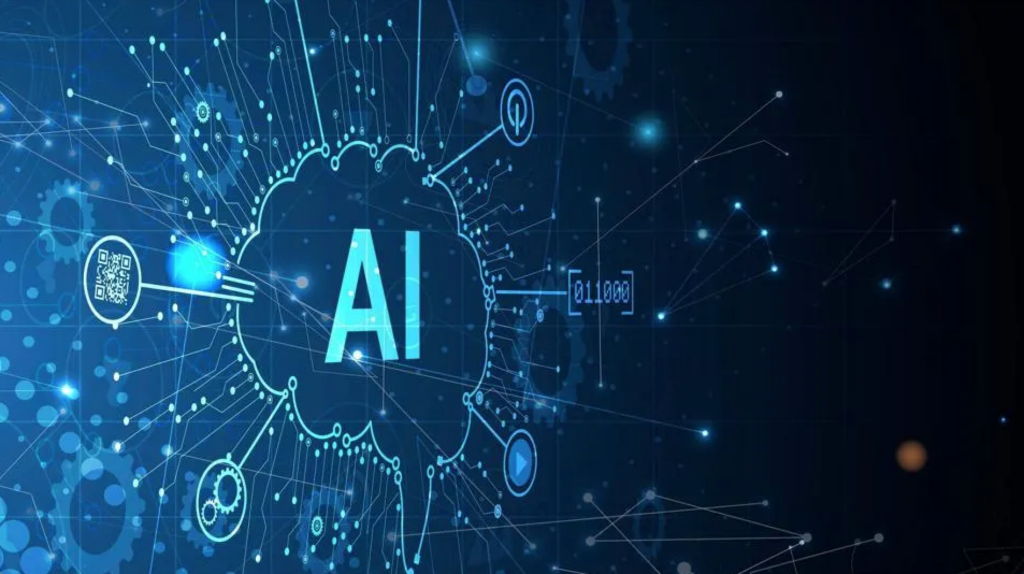
Blockchain Technology: Beyond the realm of cryptocurrency, blockchain is rewriting the rules of supply chains and security. Deloitte’s “2024 Global Blockchain Survey” paints a vivid picture of a future where transparency and trust are paramount. Blockchain ensures every transaction is secure, verifiable, and tamper-proof, providing a level of security that’s become essential in today’s digital world.
IoT Ecosystems: The IoT is weaving a web of smart, connected devices, creating efficiencies and insights that were previously unimaginable. IDC’s “Worldwide Internet of Things Forecast, 2024” lays out the roadmap for this interconnected future. From smart homes to intelligent factories, IoT is transforming how we live and work, making processes more efficient and data-driven.
2. Sustainability and ESG Initiatives
In corporate America, sustainability and ESG (Environmental, Social, and Governance) initiatives have moved from the periphery to center stage, possibly aided by BlackRock’s hard charging CEO. Companies are racing to adopt green practices, not just for the planet but for their bottom lines. Booking top corporate speakers on sustainability can provide the latest strategies and innovations.
Carbon Neutrality Goals: The World Economic Forum’s “Net-Zero Challenge” reveals a corporate race to reduce carbon footprints, with many setting ambitious net-zero targets. Despite political views, this is a leading culture in corporations sweeping through America and Europe, and it cannot be ignored. This shift isn’t just about meeting regulatory requirements; it’s about positioning companies as leaders in the fight against climate change, attracting environmentally conscious consumers and investors.
Sustainable Supply Chain Management: MIT’s “2024 State of Supply Chain Sustainability” underscores the importance of every link in the chain adopting sustainable practices. Companies are scrutinizing their supply chains, ensuring that from raw materials to final product, every step is as eco-friendly as possible. This comprehensive approach to sustainability is becoming a competitive advantage. And speaking of MIT, one of our favorite speakers from this bastion of academia, is, of course, the infamous author of the Second Machine Age, Andrew McAfee.
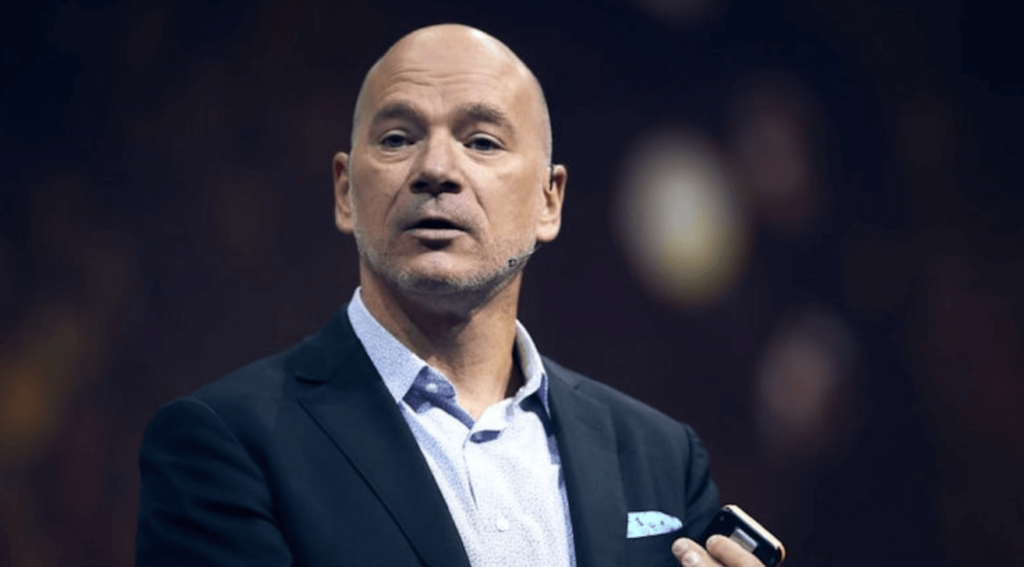
Transparent ESG Reporting: Transparency is the name of the game, as highlighted by GRI’s “Sustainability Reporting Guidelines” and SASB’s standards. MSCI’s ESG Ratings provide a clear metric for success. Companies are no longer just telling stories about their green initiatives—they’re providing hard data, allowing stakeholders to see exactly where they stand.
3. Cybersecurity and Data Privacy
The digital age brings with it a new kind of threat—cybersecurity breaches that can cripple companies and erode trust in an instant. Protecting sensitive information is not just good practice; it’s essential for survival. Just a few weeks ago, we saw the chaos that can ensue when cybersecurity fails. Microsoft’s massive outage (caused by a faulty update from the cybersecurity company CrowdStrike) grounded airlines across America, causing widespread disruption and highlighting our vulnerability to cyber threats. Booking cybersecurity speakers can help companies understand and prepare for these challenges.
Advanced Threat Detection and Response: Symantec’s “Internet Security Threat Report” and the Ponemon Institute’s “Cost of Data Breach Report” highlight the critical need for robust cybersecurity measures. Companies are investing in cutting-edge technologies to detect and neutralize threats before they can cause damage. This proactive approach is becoming a standard operating procedure.
Data Privacy Compliance: Navigating the regulatory landscape of data privacy is complex but necessary. The European Union’s GDPR and California’s CCPA set the standards. Compliance isn’t just about avoiding fines—it’s about building trust with customers who are increasingly concerned about how their data is used and protected.
Cyber Resilience Planning: The World Economic Forum’s “Cyber Resilience Playbook for Public-Private Collaboration” offers strategies for bouncing back from cyber incidents. Being prepared for the worst-case scenario ensures that companies can recover quickly, maintaining operations and protecting their reputations. The recent Microsoft outage is a stark reminder of the importance of having robust cyber resilience plans in place.
4. Economic Uncertainty and Inflation Management
Economic uncertainty is the dark cloud hanging over every corporate strategist’s head, . Inflation, market volatility, and financial instability make it imperative to have a rock-solid plan. Adding to the complexity is the upcoming American election, where the policies of the candidates could lead to significant economic shifts. Booking corporate keynote speakers who specialize in economic trends can help navigate these uncertainties. A few names to be top of the list are Ian Bremmer, Dambisa Moyo, Greg Valliere, and Larry McDonald.

Strategic Financial Planning: The IMF’s “World Economic Outlook” and Deloitte’s “CFO Signals” survey provide a sobering look at economic trends and the need for robust financial planning. Companies are re-evaluating their financial strategies, focusing on flexibility and resilience to navigate unpredictable economic waters.
Cost Efficiency Measures: McKinsey’s “Cost Management in a Volatile Environment” and Accenture’s cost-saving guides offer a blueprint for maintaining profitability. This involves everything from renegotiating supplier contracts to optimizing operational efficiency, ensuring that every dollar spent contributes to the bottom line.
Risk Management: Comprehensive risk management is essential, as outlined by the Risk Management Association (RMA) and the COSO Framework. Companies are identifying potential risks and developing strategies to mitigate them, ensuring that they can weather any storm.
Election Impact: The upcoming American election introduces another layer of uncertainty. A victory for Donald Trump could bolster traditional energy sectors like oil and natural gas, whereas a win for Kamala Harris would likely boost ESG initiatives, wind, and solar energy. The differing policies could lead to significant discrepancies in the economy. There’s a sizeable tail risk here, and consulting a good economist could help companies navigate this uncertainty.
5. Leadership and Talent Development
In the boardrooms of corporate America, leadership and talent development are the linchpins of future success, and these remain top corporate themes in 2025. The ability to attract, develop, and retain top talent can make or break a company. One notable speaker on this topic is Tim Sanders, the current CMO of Upwork. With a background in fostering talent and leadership, Tim is renowned for his insights on building strong teams and nurturing future leaders.
Upskilling and Reskilling Programs: The World Economic Forum’s “Future of Jobs Report” and LinkedIn Learning’s “Workplace Learning Report” emphasize the necessity of continuous learning. Companies are investing in training programs to keep their employees’ skills relevant in a rapidly changing world. This not only improves performance but also boosts morale and retention. Speakers that slot into the theme of corporate motivation are sprinkled throughout our Motivational Speakers category.

Developing Future Leaders: Harvard Business Review and the Center for Creative Leadership provide insights into nurturing the next generation of leaders. Companies are identifying high-potential employees early and providing them with the tools and experiences they need to grow into leadership roles. This strategic approach ensures a steady pipeline of capable leaders.
Retaining Top Talent: Gallup’s “State of the Global Workplace” and SHRM’s resources on talent retention highlight the importance of a supportive work environment. In addition, thought leaders like Bob Gower, author of “Radical Alignment” and “Agile Business,” emphasize creating cultures that attract and retain top talent. Bob Gower, a renowned speaker and consultant, focuses on agile methodologies and organizational alignment, offering deep insights into nurturing productive and engaged work environments. Companies are creating cultures that attract and retain top talent, from offering flexible work arrangements to creating a sense of purpose and belonging.
6. Resilience and Flexibility in Thinking
The ability to adapt and remain resilient in the face of adversity is the true test of successful companies. Encouraging creative problem-solving and flexible thinking can turn challenges into opportunities.
Adaptive and Resilient Mindsets: Harvard Business Review and McKinsey’s research stress the importance of cultivating a culture that embraces change. Companies are training their employees to be adaptable, encouraging a mindset that sees challenges as opportunities for growth and innovation. In fact, Whitney Johnson, who wrote the runaway bestseller “Disrupt Yourself”, is always a great choice to bolster any corporate initiatives in the growth and reinvention space.
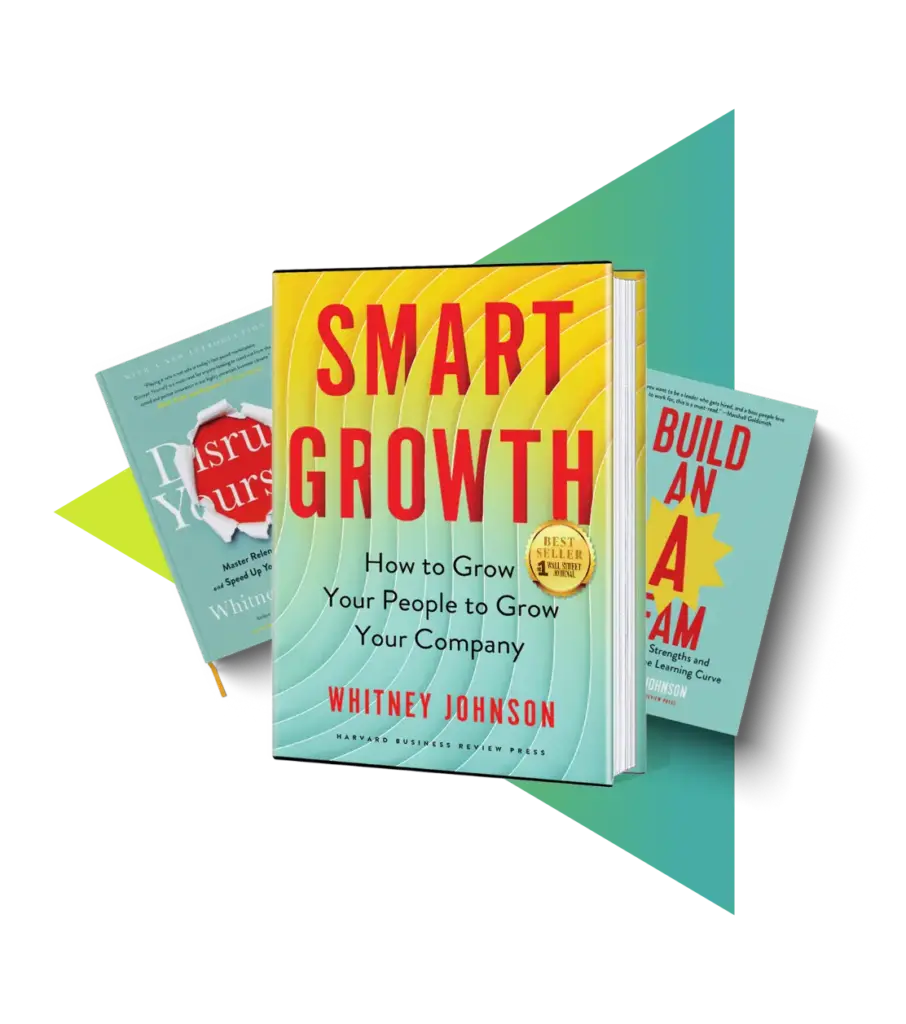
Creative Problem-Solving: IDEO’s insights on fostering innovation are invaluable for companies looking to stay ahead. Additionally, Aaron Dignan, author of “Brave New Work” and founder of The Ready, is an influential speaker who focuses on transforming organizations for greater agility and innovation. Aaron’s work emphasizes the importance of creating environments where creativity and flexibility are ingrained in the company’s culture. Companies are creating environments where creativity thrives, from brainstorming sessions to innovation labs, ensuring that they stay at the cutting edge of their industries.
Balancing Data-Driven Decisions with Human Intuition: MIT Sloan Management Review and Gartner research highlight the necessity of blending data insights with human judgment. While data is a powerful tool, the human element—intuition, experience, and empathy—remains crucial for making the best decisions.
7. Prudent Use of AI in Decision-Making
AI is a powerful tool, but like any tool, it must be used wisely. Over-reliance on AI models can lead to pitfalls. Balancing AI insights with human judgment ensures ethical and effective decision-making. The story of Jerome Rand underscores this point in a non-corporate setting, which adds serious drama to any conference.
Jerome, an experienced solo sailor, who circumnavigated the world nonstop in 2017, nearly lost his life by relying too heavily on weather models and artificial intelligence. He was navigating the Gulf Stream during storm season. Ignoring his gut instincts, he found himself upside down in a hurricane, conditions that could have been avoided with human judgment. Jerome’s harrowing experience is a cautionary tale about the dangers of over-reliance on AI. He shares these insights at conferences across America.

Integrating AI Insights with Human Judgment: The IEEE’s guidelines and the “AI Ethics and Governance” report by the AI Now Institute provide a framework for ethical AI use. Companies are developing policies that integrate AI with human oversight, ensuring that AI is used to enhance, not replace, human decision-making.
Avoiding Over-Reliance on AI Models: The Brookings Institution’s research and the “Responsible AI” guidelines by the Partnership on AI warn against the dangers of over-reliance. Companies are aware of the limitations of AI and are ensuring that human judgment remains a critical part of the decision-making process. Jerome Rand’s experience is a stark reminder of the importance of this balance. Inviting him to share his story at conferences can offer valuable lessons for any corporation.
Ensuring Ethical Considerations in AI Use: The European Commission’s guidelines and the World Economic Forum’s “Ethics of Artificial Intelligence” report stress the importance of ethical AI practices. Companies are implementing ethical guidelines to prevent biases and ensure fairness, maintaining trust in their AI systems.
Conclusion
As we approach 2025, the corporate landscape is shaped by a few of these themes, each bringing its own set of challenges and opportunities. For conference and event planners, understanding these themes is crucial to curate events that not only address the pressing issues but also inspire and inform. By focusing on digital transformation, sustainability, cybersecurity, economic resilience, leadership development, adaptive thinking, and prudent AI use, planners can ensure their events are relevant, impactful, and ahead of the curve. In the high-stakes world of corporate America, staying informed is the best defense—and the best offense.
Bibliography
Gartner, Inc. (2024). Top Strategic Technology Trends for 2024. Retrieved from Gartner
Deloitte. (2024). 2024 Global Blockchain Survey. Retrieved from Deloitte
IDC. (2024). Worldwide Internet of Things Forecast, 2024. Retrieved from IDC
World Economic Forum. (2024). The Net-Zero Challenge. Retrieved from WEF
Massachusetts Institute of Technology. (2024). 2024 State of Supply Chain Sustainability. Retrieved from MIT
Global Reporting Initiative. (2024). Sustainability Reporting Guidelines. Retrieved from GRI
Sustainability Accounting Standards Board. (2024). SASB Standards. Retrieved from SASB
